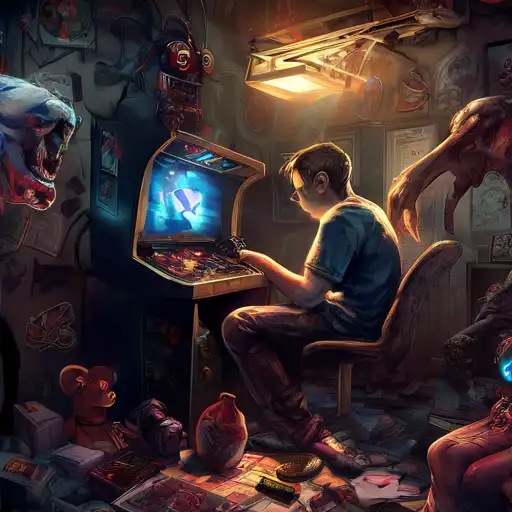Introduction to Gaming Addiction
Gaming addiction, a growing concern in the digital age, is a form of psychological dependency that affects millions worldwide. This article delves into the psychological underpinnings of gaming addiction, exploring why and how individuals become ensnared in the virtual worlds of video games.
The Psychological Appeal of Video Games
Video games are designed to be engaging and rewarding, tapping into basic human psychology. They offer a sense of achievement, social connection, and escape from reality, which can be particularly appealing to those seeking relief from stress or dissatisfaction in their daily lives.
Reward Systems and Dopamine
One of the key factors in gaming addiction is the game's reward system. Similar to gambling, video games can trigger the release of dopamine, a neurotransmitter associated with pleasure and motivation. This biochemical response can create a cycle of addiction, as players continually seek the next reward.
Escapism and Identity
For many, gaming offers an escape from the pressures of real life. It allows players to assume different identities and explore worlds where they can exert control, something that may be lacking in their personal or professional lives.
Risk Factors for Gaming Addiction
Not everyone who plays video games becomes addicted. Certain psychological and environmental factors can increase the risk of developing an addiction.
- Personality Traits: Individuals with high levels of impulsivity or neuroticism may be more susceptible.
- Social Isolation: Those who feel isolated or disconnected from their peers may turn to gaming for social interaction.
- Mental Health Issues: Conditions such as depression and anxiety can make gaming an attractive coping mechanism.
Preventing and Addressing Gaming Addiction
Understanding the psychological triggers of gaming addiction is the first step in prevention and treatment. Strategies include setting time limits, seeking alternative forms of entertainment, and addressing underlying mental health issues.
Professional Help
For those struggling with severe addiction, professional help may be necessary. Therapies such as cognitive-behavioral therapy (CBT) can be effective in changing the thought patterns that contribute to addictive behaviors.
Conclusion
Gaming addiction is a complex issue rooted in psychology. By recognizing the signs and understanding the underlying causes, individuals and families can take steps to mitigate the risks and seek help when needed. For more information on mental health and addiction, visit our mental health resources page.
